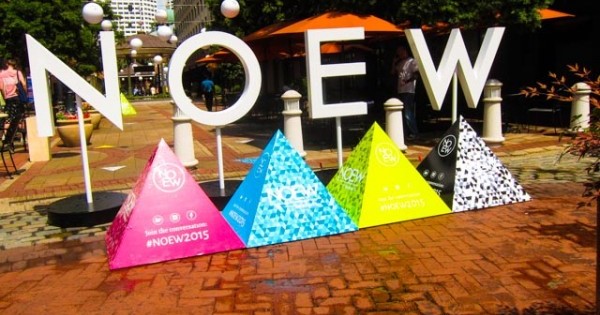
“On the day after Katrina, everyone became an entrepreneur,” Tim Williamson says. “You had a city that was shut down. Every business was closed, and homes were gone. There was tons of risk and tons of uncertainty, but a sense of belief in the city. We all had to start over.”
Williamson, co-founder and CEO of The Idea Village, had a front row seat to observe the rise of this uninvited entrepreneurialism. He and the four other founders had all come from similar backgrounds when they launched the nonprofit in 2000, five years before the storm—they’d grown up in the city, left to begin careers elsewhere, then returned to start tech-related enterprises. They competed with one another, but also believed that pooling their knowledge and experience could help like-minded new businesses thrive, and boost the city’s troubled economy. The Idea Village’s Twitter page says simply that it’s “for entrepreneurs and those who believe in them.”
For their first five years they relied on local support and maintained a local focus. Then Katrina hit, and the levees failed. The Idea Village suddenly found itself in a global spotlight, fielding calls from influential people around the world who wanted to help with the rebuilding; money and ideas flowed in. Local business networks, long considered hidebound and stodgy, broke apart and had to reform. “New Orleans became reframed as a laboratory,” Williamson said.
Among the calls: several MBA programs offered assistance. In 2009, Williamson thought it sensible to bring six MBA teams down at once, boil up some crawfish, and make it an event. Out of this emerged New Orleans Entrepreneur Week, or NOEW (pronounced No-Wee). In seven years it’s grown from a handful of MBAs to a teeming swarm of can-do aspiring business folks. The 2015 edition kicked off this past weekend, and Williamson said he’s expecting 10,000 people to attend various seminars, pitch sessions, and rooftop parties.
Williamson’s goals are lofty. He doesn’t want NOEW to be just be a parley of Powerpoints and pitches. He sees it evolving into a world-class festival, the sort of thing people plan their year around, as they do with so much else in the city. “We want the country to think of New Orleans not only in terms of Mardi Gras and Jazzfest, but in terms of business innovation and entrepreneurship.” he said. “It’s a matter of changing our culture.”
Even a casual observer will notice that all the other events the city mobilizes around are celebrations of not working. The Saints. Jazzfest. Mardi Gras. And the countless smaller festivals that take place nearly every weekend. Visitors often marvel that anything ever gets done here. Convincing New Orleans to rally around a festival of working, to get as amped up about creating jobs as they do about taking a break from their jobs … well, that seems a pretty tall order.
Williamson’s undeterred. While every city gives lip service to creating an entrepreneurial culture with hope of attracting the next Apple or Uber, Williamson thinks New Orleans’s embrace of “ritual and rhythms” has something to teach other cities about how to get residents to connect with one another, which some would argue is at the heart of entrepreneurship.
Last Sunday I sat in at a NOEW event billed as the Food Innovation Summit, joining about 60 people who hoped to learn from the experience of those who’ve launched food- and drink-related enterprises. If anything seems ripe for the leveraging, it’s New Orleans’s connection to culinary excellence.
Among the businesses that presented was Good Eggs, which launched in San Francisco and has since expanded to three other cities, including New Orleans. It’s essentially an online farmer’s market. You shop on a website that’s regularly updated with beautiful photos of this week’s locally grown and produced foodstuffs, which drivers then deliver to your door.
Tess Monaghan, the head of Good Eggs New Orleans, said they they’ve created a platform that help producers bridge a gap. They often work with those too big to depend on a stand at the local farmer’s market, yet too small to supply regional grocery stores. Good Eggs is not so much a food incubator as a food elementary school.
Another local food business I heard people talking about was Your Nutrition Delivered. The founder, a former weightlifter and health care reform advocate named Erik Frank, attended NOEW out of curiosity in 2010. He came back with his own pitch and won the Big Idea contest two years ago. His firm now makes and delivers healthy meals to home and workplace, offering dishes like vegetarian barbecue sweet potato with grilled tofu, and a Cajun turkey burger steak with feta and Creole remoulade.
No surprise: New Orleans has not yet become famous for these dishes, nor is it yet renown for its celebrations of work and healthy eating. But it’s early. Tim Williamson’s just getting started, and the laboratory Katrina wrought is still pretty young. Anyway, every lab has to conduct a whole slew of experiments before that big breakthrough shows up.

